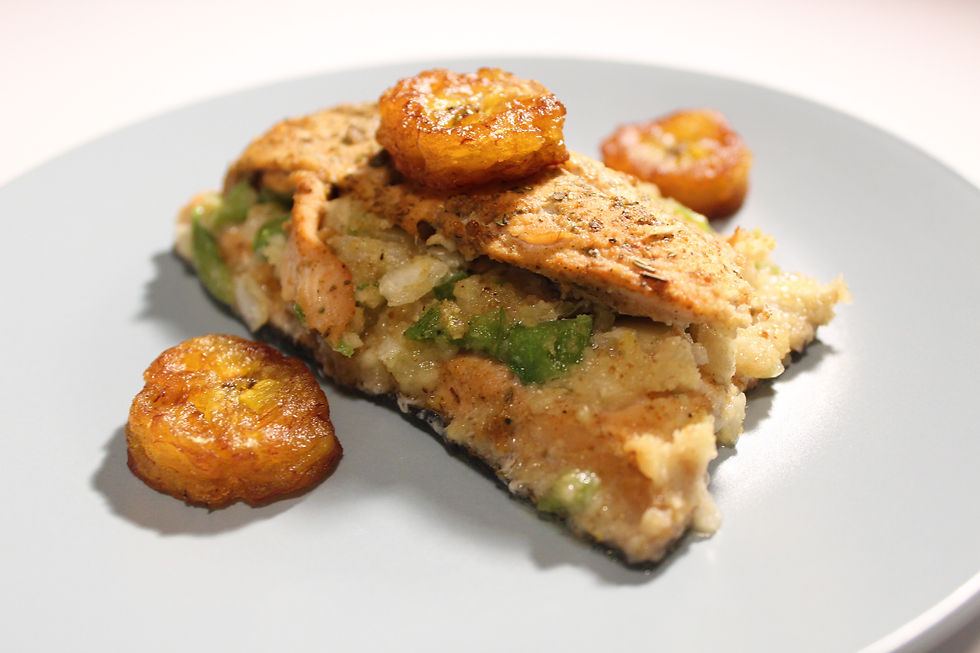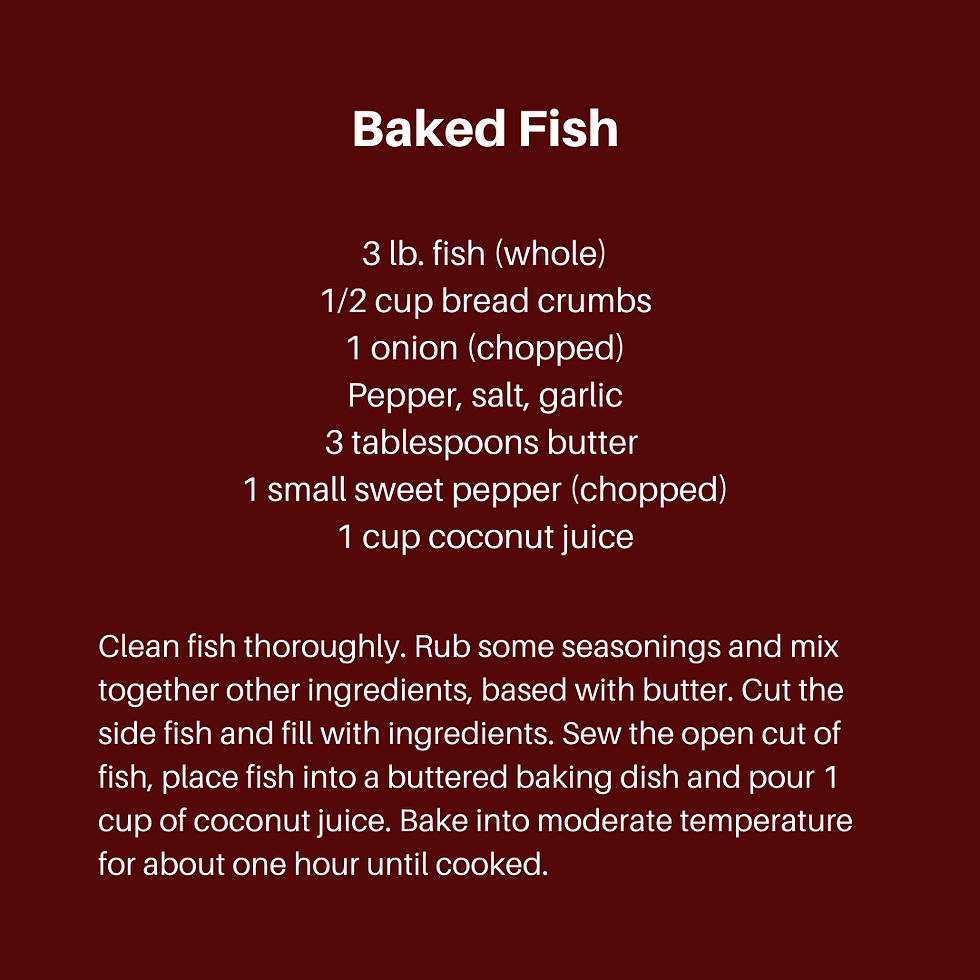Under the Sea
- Amari Dawn Pollard

- Mar 24, 2020
- 2 min read

Experts say it takes anywhere between 18 to 254 days for a person to form a new habit and that it takes an average of 66 days for a new behavior to become automatic. It has been 70 days since I launched Bone & Marrow as a means of cataloging my progress through “Jamaican Cookery,” and I've started noticing the impact it’s having on my own habits. Before COVID-19 completely changed my daily practices and forced me to extend my “spring break” stay in Florida with my sister, I was cooking in my kitchen almost every day. Whenever I became antsy or stressed or bored, I would find myself gravitating toward the fridge to assess what ingredients I had on hand to prepare a meal.
The last meal I cooked before leaving Chapel Hill — really the last meal I’ve cooked (no one tells you how weird it feels cooking in someone else’s kitchen) — was Baked Fish. It was a simple recipe and one I never intended to make considering it didn’t seem fully representative of Jamaican cooking. But, my food supplies were running low and there seemed to be just enough to make the recipe work.
The recipe called for three whole fish but didn’t specify what kind. So, I took three salmon fillets out of the freezer to thaw, despite having a feeling that the recipe would taste better using snapper or cod. That feeling was confirmed an hour later. It wasn’t that the meal was particularly disappointing or that the fish didn’t taste good, but ingredients like breadcrumbs, butter, and coconut juice seemed to mask the natural taste of salmon rather than compliment it.

Usually, something that appears imperfect or doesn’t meet my expectations upsets me because it puts my capabilities into question and intensifies my insecurities. Instead, I was able to acknowledge the fact that the meal didn’t turn out how I imagined and still eat it with joy, as though it had. Maybe it’s because the process of cooking is becoming increasingly more important than the results.



Comments